Farmers Markets
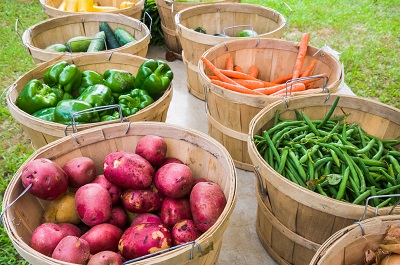
Farmers markets are "growing" in Alaska!
These seasonal markets are sponsored by local community organizations and provide the opportunity for certain food producers to sell directly to consumers.
- Questions about farmers markets?
- Contact your local Environmental Health Officer.
On This Page
Permitting at Farmers Markets
Certain food products sold at farmers markets require a permit due to safety considerations, while other food products are exempt from permitting requirements.
Permitting helps ensure Alaskans can sell and buy food that is safe to eat. Applying for a permit provides an opportunity to review the safety of your food product and ensure it is prepared and sold in a manner that protects the health of consumers.
If you ever have questions about the safety of your food product, your local Environmental Health Officer is available to help.
Food Products That Require a Permit
Any food that requires temperature control for safety, or is otherwise potentially hazardous, must be sold under a permit.
These foods support the growth of dangerous bacteria if they are not prepared correctly or held at an appropriate temperature and those bacteria can cause consumers to become sick.
Food Service
Operations serving food to the public are required to hold a permit, unless they are otherwise exempt. Examples of food service operations at farmers markets that must be permitted include:
- Food trucks and other mobile units (Visit the Mobile Food Units webpage)
- Temporary food service (Visit the Temporary Food Service webpage)
Food and Agricultural Products
A permit is required before an operation may sell any of the food and agricultural products listed below:
Meat and Seafood
- Frozen or refrigerated meat or poultry
- Frozen or refrigerated seafood
- Shelf-stable products such as jerky or canned salmon
- Note: If these items are from a permitted processor, they can be sold without additional permitting
Dairy
- Cheeses
- Dairy products (including ice cream)
Fruits and Vegetables
- Seed sprouts
- Fresh vegetable juices
- Any fruit or vegetable that has been processed
- Processing includes: Peeling, slicing, chopping, shredding, shucking, and coring
- Food products made with cooked vegetable products that are not acidified
Other Items
- Garlic in oil mixtures
- Baked products that require refrigeration (e.g. cheesecake, custards, lemon meringue)
- Non-acidic canned foods (i.e. canned vegetables that are not pickled or fermented)
- Pesto
- Bottled water
- Cold brew coffee
Apply Now
Use the button above to access the application or visit the Food Establishments webpage to determine the appropriate permit type for your business.
Food Products That Are Exempt from Permitting
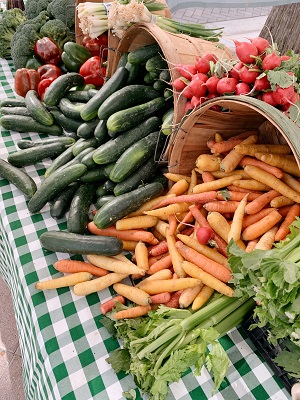
Raw, Whole Fruits and Vegetables
Most produce sold in its raw, whole, and natural state is exempt from the permit requirement. This includes vegetables, herbs, microgreens, and fruit.
Fruits and vegetables are also exempt if they have been rinsed or trimmed of unnecessary parts, or if the greens have been separated from the roots. However, if any further processing (peeling, slicing, chopping, shredding, shucking, coring, etc.) is done, the product will require a permit. Sprouts always require a permit.
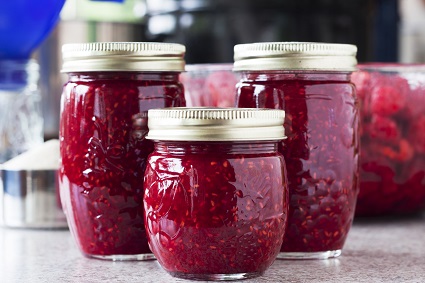
Cottage Foods
Non-potentially hazardous foods can be sold in Alaska without a permit if certain conditions are met.
These foods do not support the growth of dangerous bacteria because of their water activity values, pH values, or a combination of water activity and pH values. Examples include honey, jams and jellies, cookies, and salsa.
Visit the Cottage Food webpage to learn more about food products that can be sold at a farmers market without a permit.
If a producer is unsure about the safety of their product, lab testing may be required. Be sure to contact Cooperative Extension or Food Safety and Sanitation for more information.
Selling Eggs
Certain types of egg sales are regulated in Alaska. Visit the Selling Eggs webpage for more information.
Regulated Egg Sales
The sale of eggs is regulated if the eggs are not sold by the producer directly to the consumer.
- A producer selling eggs to an intermediary: The producer sells the eggs to someone who is not the final consumer
- An intermediary selling eggs: Someone who is not the producer sells the eggs to the final consumer, a repacker, or a retail store
The Department of Environmental Conservation and the Department of Natural Resources are responsible for regulating these types of food and agricultural sales.
Exempt Egg Sales
The sale of eggs by the producer directly to the consumer is an exempt activity and is not regulated by the state of Alaska. This includes producers selling eggs on their farm, at the farmers market, and at roadside stands directly to the final consumer.
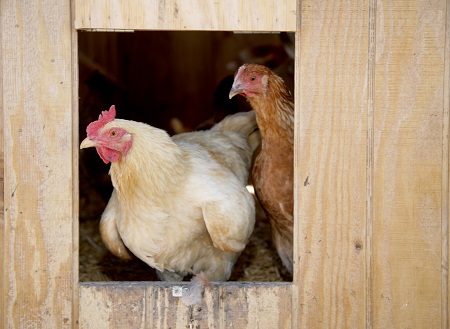
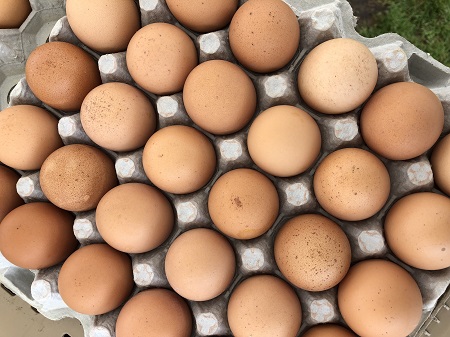
Food Safety Considerations at Farmers Markets
Using good food safety practices at farmers markets limits the potential for products to become contaminated or otherwise unsafe for consumption and can increase customer knowledge. Areas to consider include:
- Preparing, transporting, and displaying products to avoid contamination
- Labeling products clearly so consumers can easily tell what they are
- Posting information about ingredients and allergens
- Monitoring holding temperatures of products while they are on display at the market
- Protecting products from insects and other environmental contaminants
- Serving food samples safely (Visit the Serving Food Samples webpage for more information)
- Handwashing facilities (Visit the Building a Handwashing Station webpage for more information)
Regulatory References
- 18 AAC 31 Alaska Food Code
- 18 AAC 31.012 Alaska Food Code Exemptions
- 11 AAC 32.110 Shell Egg Regulations
- 18 AAC 32.070 Raw Milk and Raw Milk Product Production and Sales
Resources and Contacts
Resources
- Alaska Farmers Market Toolkit
- Resources and information from the Alaska Farmers Market Association
- Farmers Market Resource Fact Sheets
- Provided by the Alaska Division of Agriculture
- Raw Milk Sales in Alaska
- Information from the Office of the State Veterinarian regarding raw milk sales at markets and directly to consumers
- Temporary Food Service
- Information about temporary food service applications and permitting in Alaska
- Building a Handwash Station
- Instructions for building a temporary handwash station
- Serving Food Samples
- Information about serving food samples safely
- Cottage Food
- Information about the production and sale of cottage food products in Alaska
- Selling Eggs
- Information about safely selling eggs in Alaska
- Alaska Grown
- The Alaska Grown logo identifies local products grown in Alaska
- Measurement Standards
- Information about weights and measures for agricultural products sold in Alaska
- Made in Alaska
- Information from the Department of Commerce, Community, and Economic Development about the Made in Alaska program
Contacts
- Food Safety and Sanitation
- Find your local Environmental Health Officer
- Cooperative Extension
-
- 308 Tanana Loop, Room 101
- P.O. Box 756180
- Fairbanks, Alaska 99775
- 907-474-5211
- ces@alaska.edu
- Alaska Division of Agriculture
-
- 1801 S. Margaret Drive, Suite 12
- Palmer, Alaska 99645
- 907-745-7200
- Office of the State Veterinarian
-
- 5251 Dr. Martin Luther King, Jr. Avenue
- Anchorage, Alaska 99507
- 907-375-8215

 Indicates an external site.
Indicates an external site.